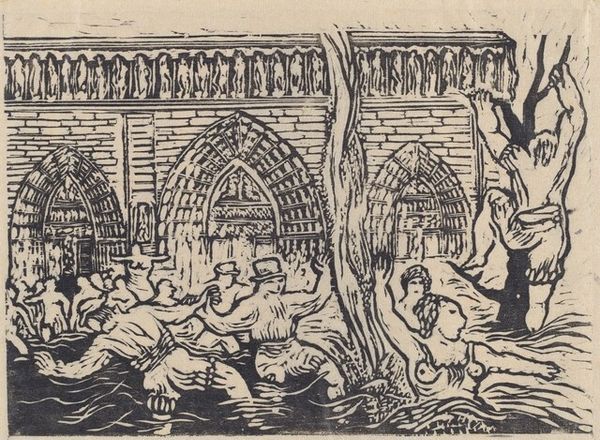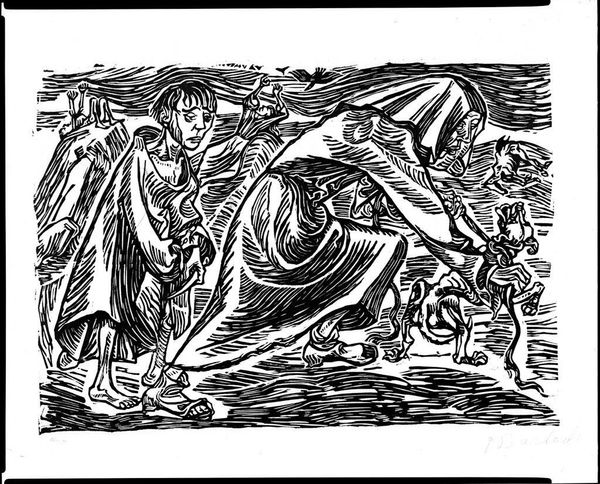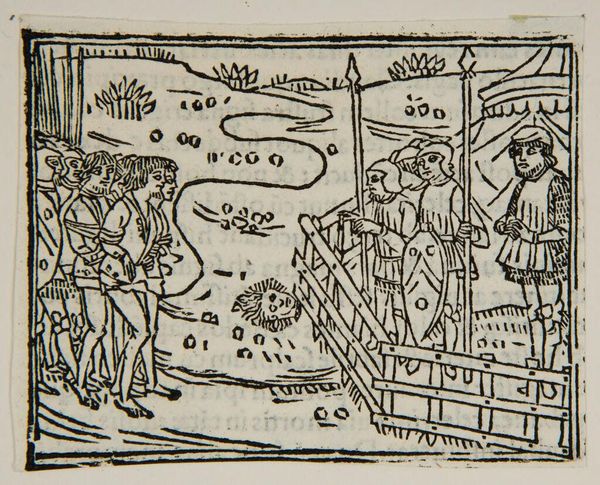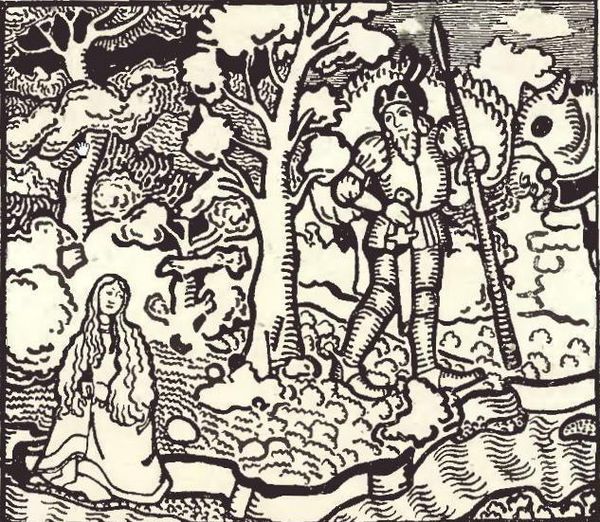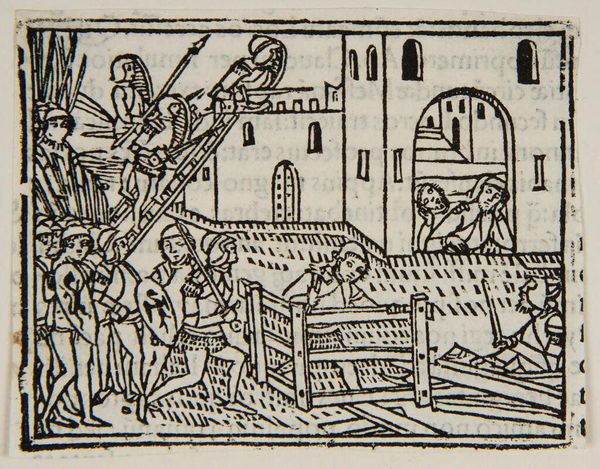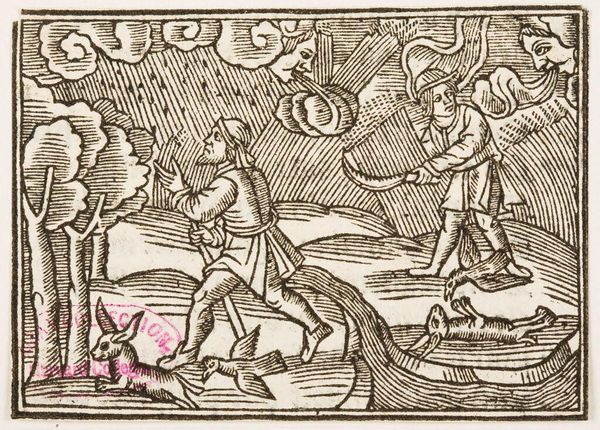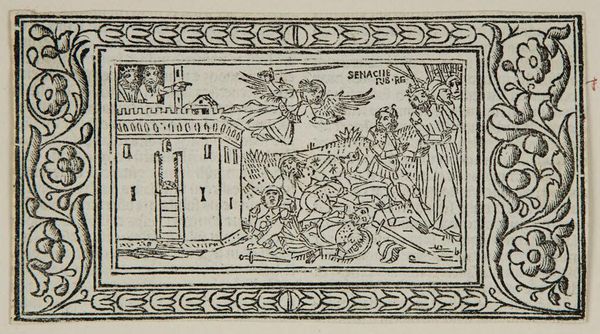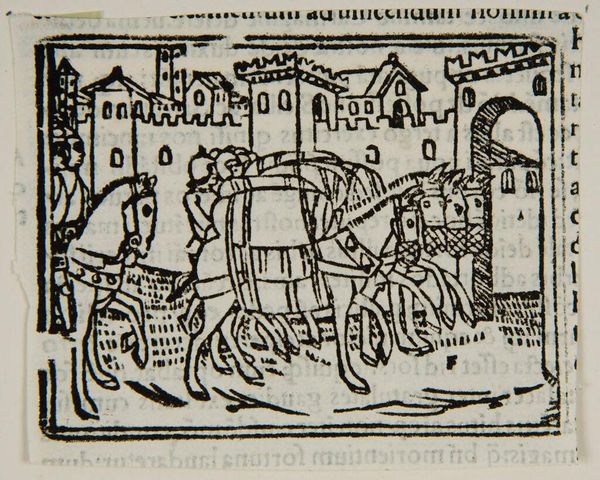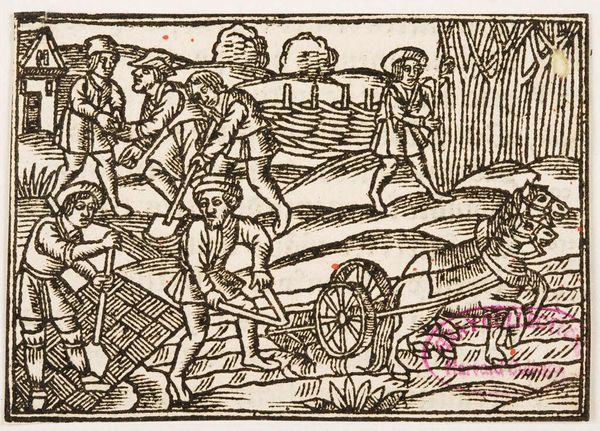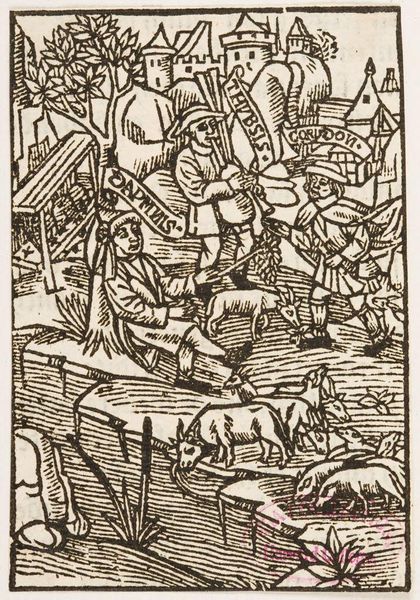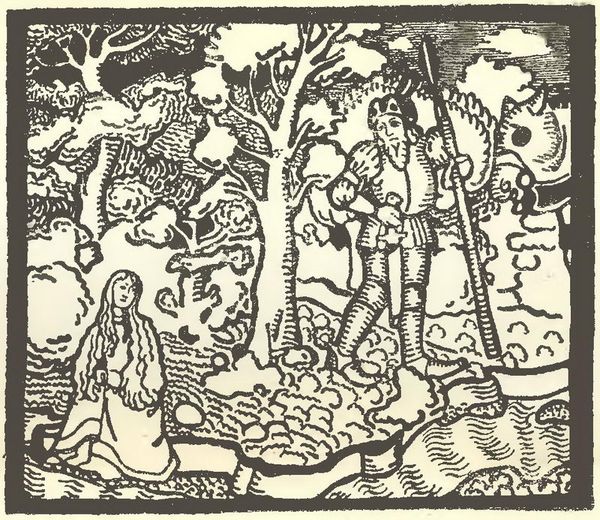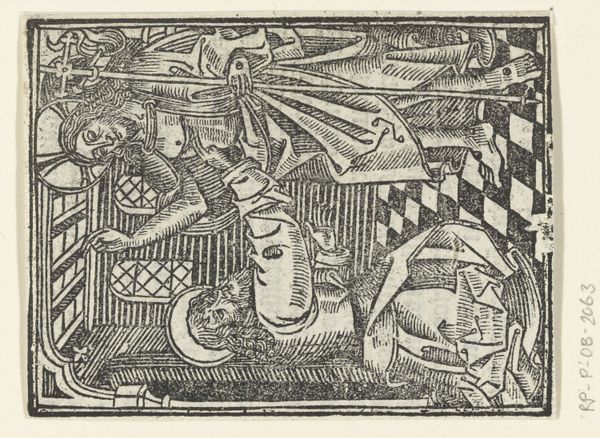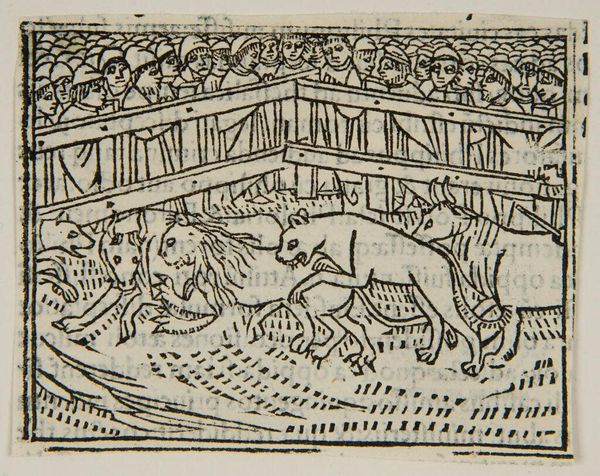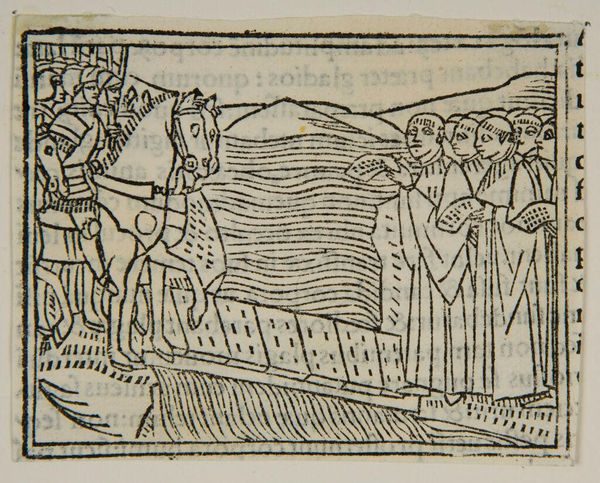
drawing, graphic-art, print, ink, woodcut
#
drawing
#
graphic-art
#
medieval
#
narrative-art
#
pen drawing
# print
#
pen illustration
#
old engraving style
#
landscape
#
ink line art
#
ink
#
woodcut
#
line
Copyright: Public domain
Editor: Here we have Nicholas Roerich's "Vignette for book 'N. K. Roerich'," a print from 1918, rendered in ink, evocative of woodcut and graphic arts. I find its stark contrasts quite dramatic and somewhat unsettling. What do you see in this piece? Curator: The stark contrast you mention is critical. The success of the work resides almost entirely within this duality of black and white. Observe how Roerich meticulously articulates form and space through line and density. Consider, for instance, the lines creating depth on what might be sand dunes in the foreground: How does the composition of those lines affect our perception of volume? Editor: They seem to create a sense of movement, a kind of rippling effect across the landscape, making it feel alive. It reminds me a bit of medieval tapestries and their flattened perspective. Curator: Precisely. The intentional flattening and use of line are the core to the artwork’s aesthetic value, invoking a somewhat medieval, iconographic, stylistic vocabulary that bypasses direct representation to favor a constructed visual experience. What impact does the artist’s simplification of form have on you? Editor: I see now how the simplified forms contribute to a sense of timelessness. It’s not just a landscape, but a symbolic space. The artist almost reduces form to symbols, focusing on pattern and contrast. Curator: A fine assessment. What begins to emerge for you as a response to its design? Editor: Looking closely at this work, I’ve realized that stripping down to basics reveals a potent visual language where form, contrast, and composition work together. Thanks! Curator: Indeed. And perhaps understanding how Roerich’s graphic vocabulary functions offers new appreciation for visual abstraction across time.
Comments
No comments
Be the first to comment and join the conversation on the ultimate creative platform.
